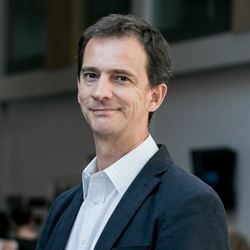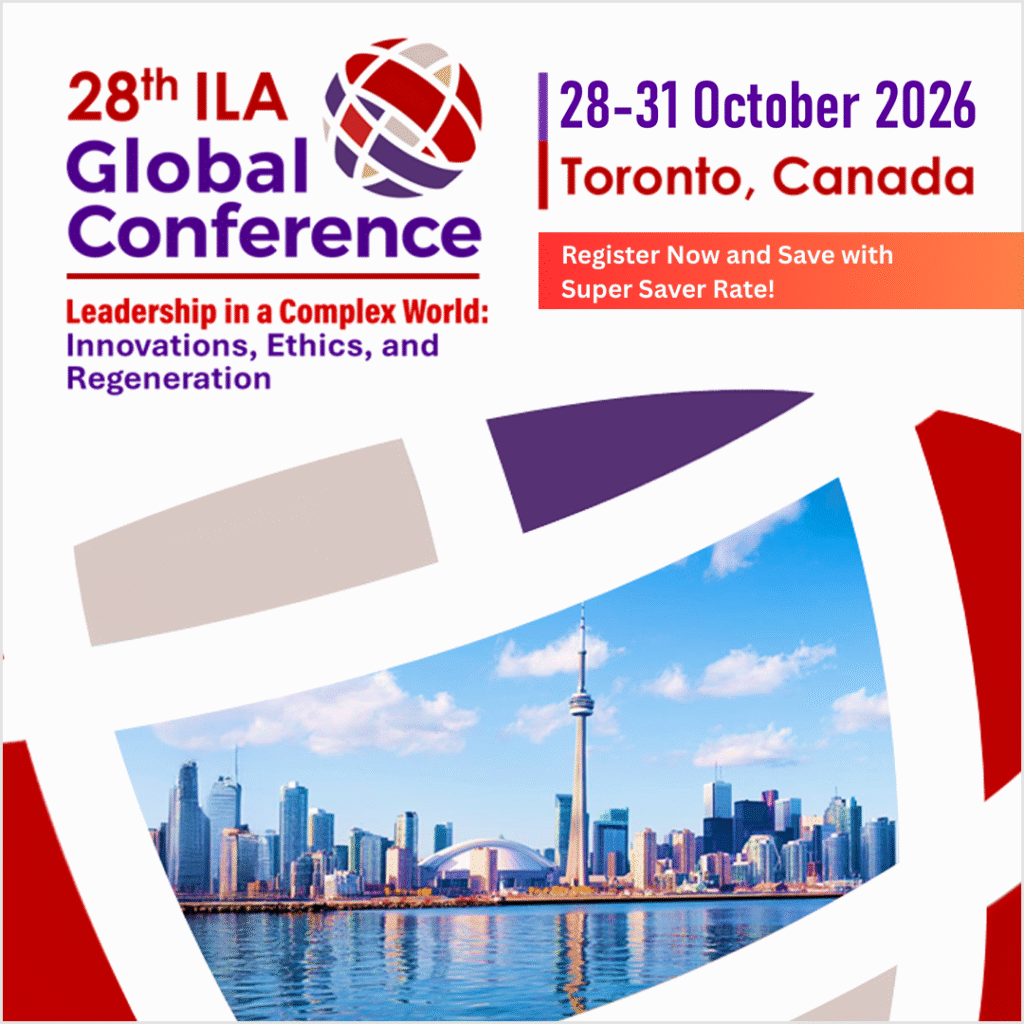
by Professor Richard Bolden
- 19 February 2025
Share:
In 2025 the world feels like a very divided place. Long-standing institutions and alliances such as the World Health Organization, International Criminal Court, United Nations, European Union, and NATO that were established to promote peace and collaboration, are at risk of crumbling. At the recent Munich Security Conference (MSC) a senior Western official was reported to have said “this is the most dangerous and contested time I have ever known in my career” (Gardner, 2025).
Across the world complex topics such as migration, armed conflict, climate change, DEI (diversity, equity and inclusion), and economic growth are boiled down into simplistic binaries: woke/anti-woke, growth/anti-growth, etc. As public and political opinion becomes polarized and entrenched, the capacity to listen, empathize, and learn from alternative perspectives is eroded, as is the potential to build lasting and effective partnerships and collaboration to address the “wicked” problems we face, not just as individuals, but as members of interconnected and interdependent systems on which we all depend (Grint, 2024).
In their intriguing book Global Leadership Perspectives: Insights and Analysis, Simon Western and Eric-Jean Garcia (2018) capture “insider” and “outsider” discourses from 20 different countries/regions, many of which are characterized by trauma, disenchantment, and despair. The theme of “melancholic leadership” was seen to be a common thread throughout many of the in-country accounts. As Western argues in the penultimate chapter: “Looking at all of these 20 chapters and drawing on experience in the field, I believe that melancholic leadership is a very common, yet hidden leadership theme. I am not referring to a leader’s personal melancholy, but a melancholy that reflects cultural situations where collective and social loss takes place and where a leader galvanizes support and influences others on the basis of the melancholic dynamic. The unconscious repression that ‘protects’ the individual’s conscious ego from facing the impact of a deep loss is fairly common in organizations as well as nation-states” (p. 261).
Melancholic leadership, it is argued, arises as a psychological defense against the trauma and anxieties associated with a deep sense of loss. Such avoidance is associated with the abandonment of individual and collective agency. Loss of voice and/or aspiration leaves the space clear for abusive, manipulative, and/or destructive leadership to flourish — empty promises of a “better future” that translates into yet greater inequality and suffering for the many, whilst the few reap ever greater rewards.
Embracing hope in the face of adversity, whilst inevitably challenging, provides a foundation for the compassion, empathy, and collaboration required to rebuild fractured societies.
Such issues are addressed in a recent special issue of the journal Leadership on the topic of “leadership and the future of humanity.” In the face of conflict and crisis the editors, Zahira Jaser and Dennis Tourish (2024), propose “hope” as the only real antidote to despair. “Hopeful leadership,” they argue, is “the continuous belief in and search for possible and better futures, even if they are imperfect” (p. 255, [italics in original]). A particularly powerful illustration of the power of hope is given in Josh Hayden’s (2024) analysis of Václav Havel and the Charter 77 human rights movement in Czechoslovakia. In the words of Havel: “Hope is not prognostication. It is an orientation of the spirit, an orientation of the heart, it transcends the world that is immediately experienced, and is anchored somewhere beyond its horizons… Hope, in this deep and powerful sense, is not the same as joy that things are going well, or willingness to invest in enterprises that are obviously headed for early success, but, rather an ability to work for something because it is good, not just because it stands a chance to succeed. The more unpropitious the situation in which we demonstrate hope, the deeper that hope is. Hope is definitely not the same thing as optimism. It is not the conviction that something will turn out well, but the certainty that something makes sense, regardless of how it turns out” (Havel, 1986/1990, cited in Hayden, 2024, p. 315).
Embracing hope in the face of adversity, whilst inevitably challenging, provides a foundation for the compassion, empathy, and collaboration required to rebuild fractured societies, in much the way that Nelson Mandela and his compatriots set out to build the “Rainbow Nation” in post-apartheid South Africa.
Whilst much leadership research continues to focus on the characteristics and skills of individual leaders, we would do well to give more consideration to how we can foster collective and inclusive leadership in order to tackle the complex, systemic, and intractable challenges we now face, and to better mobilize against destructive and self-centered leadership. One area where such issues are considered is the emerging field of “peace leadership,” defined as “the intersection of individual and collective capacity to challenge issues of violence and aggression and build positive, inclusive social systems and structures” (McIntyre Miller, 2016, p. 223).
In a recent symposium in the Journal of Leadership Studies on this topic, Jonathan Gosling and I highlight the significance of facilitative leadership not just in navigating divergent interests and agendas, but in reframing the nature of the narratives in which we find ourselves (Bolden and Gosling, 2024). For us, skilled facilitation is a collaborative process that involves opening up alternative storylines and perspectives that transcend traditional boundaries and divisions. Other important dimensions of peace leadership, outlined in this symposium, include humility; emotional intelligence; listening and leadership-as-practice; adaptiveness; diversity, equity, inclusion, and belonging; social networking analysis; and systems thinking (McIntyre Miller, 2024).
Bolden, R., & Gosling, J. (2024). Facilitative Leadership: Re-Framing Narratives to Navigate Conflict and Difference. Journal of Leadership Studies, 18(3), 83-90. https://doi.org/10.1002/jls.21910
Gardner, F. (2025, February 13). Leaders Set for Key Security Meeting as ‘Old’ World Order at Risk of Crumbling. BBC News. https://www.bbc.co.uk/news/articles/cjex5w1z02do
Grint, K. (2024). Is Leadership the Solution to the Wicked Problem of Climate Change? Leadership, 20(2), 77-95. https://doi.org/10.1177/17427150231223595
Hayden, J. M. (2024). Leadership and the Ethics of Hope: Václav Havel and the Charter 77 Human Rights Movement in Czechoslovakia. Leadership, 20(5), 314-333. https://doi.org/10.1177/17427150241256160
Jaser, Z., & Tourish, D. (2024). Hope for Leadership: Introduction to the Special Issue “Leadership and the Future of Humanity.” Leadership, 20(5), 249-260. https://doi.org/10.1177/17427150241272894
McIntyre Miller, W. (2016). Toward a Scholarship of Peace Leadership. International Journal of Public Leadership, 12(3), 216 – 226. https://doi.org/10.1108/IJPL-04-2016-0013
McIntyre Miller, W. (2024). Symposium on Leadership Competencies for Peace Leadership: An Overview and Invitation. Journal of Leadership Studies, 18: 48-53. https://doi.org/10.1002/jls.21913
Tomkins, L. (2024). Franz Kafka and the Truths of Leadership. Edward Elgar.
Western, S., & Garcia, E.J. (2018). Global Leadership Perspectives: Insights and Analysis. Sage Publications.

Dr. Richard Bolden is Professor of Leadership and Management and Director of Bristol Leadership and Change Centre at Bristol Business School, University of the West of England. His teaching and research explore the interface between individual and collective approaches to leadership and leadership development. He has published widely on topics including distributed, shared and systems leadership; leadership paradoxes and complexity; cross-cultural leadership; and leadership and change in healthcare and higher education. He is Associate Editor of the journal Leadership, Fellow of the International Leadership Association, Visiting Professor at the University of Pretoria and Senior Fellow of the Higher Education Academy. His latest book Exploring Leadership: Individual, organizational and societal perspectives, 2nd edition was published by Oxford University Press in March 2023.

